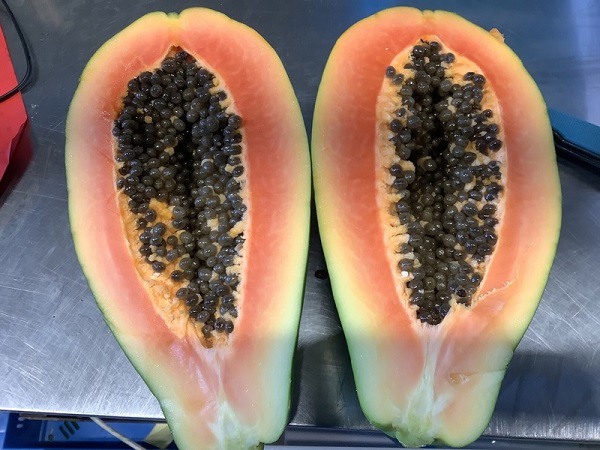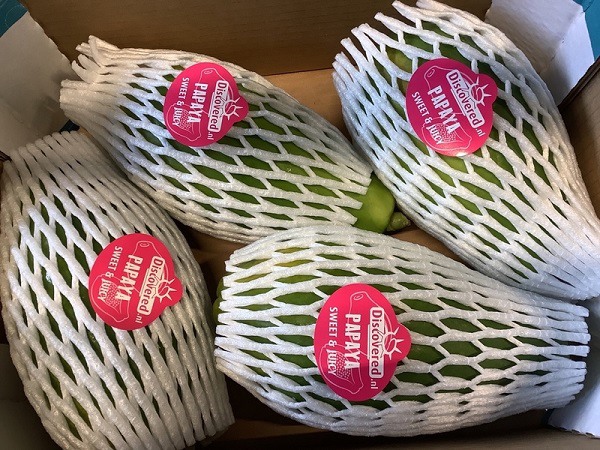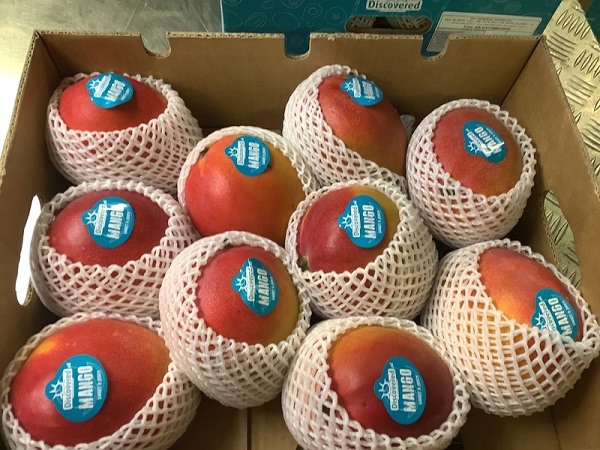Papaya: an exotic fruit that is gaining popularity in many countries. Although it remains a niche product, this market is currently stable and growing steadily. The question is whether inflation will affect sales. In early October, that did not seem to be the case.

The Dutch company Yex has Formosa and Golden papayas available year-round. Formosa is one of the largest papaya varieties. "Most of our papaya comes from Brazil," says sourcing manager Robbert van Essen. "Many customers request both varieties. Apart from size and price, these products are very similar. Formosa papaya, for example, often goes to German retail, while Golden is popular in Eastern Europe and the Middle East."
Increasingly limited airfreight
"We're importing increasingly more Spanish Formosa papayas from the Canary Islands. We want to source larger volumes from Europe in the coming years. That's an environmentally conscious choice. The Spanish product comes from close by and doesn't have to be flown in. Sustainability is also an important concern for us, and we're always looking at ways to transport products as efficiently as possible or source products more locally. That's what our retail customers want too. Air freight is expensive and is currently under considerable pressure," continues Robbert.
Here, he refers to, among others, Lidl Sweden's statement. In September, that chain announced it would stop flying in its fruit and vegetables. "That doesn't affect us yet. But it undoubtedly will if that were to become a trend." Golden papayas are not grown in Europe and come primarily from Brazil. These papayas are brought in solely by air freight. Robbert notes that freight costs are exceptionally high.

"The wildly fluctuating exchange rates always make the situation in Brazil tricky anyway. Nevertheless, the papaya market is currently quite stable. Will that change? Who knows. Papaya remains a luxury product. Inflation doesn’t seem to be noticeably affecting exotic sales yet. At this point, it's hard to say if consumers will cut back on their groceries or perhaps eat out less," he explains.
Quiet mango market
This year, Yex is importing more mangos from Spain too. The high temperatures mean most of those are smaller than usual this season. "In recent years, retailers are noticeably more often importing European produce themselves. That's already become an issue for Brazilian mangos, so, there, we remain significant. The mangoes from Israel and Puerto Rico are off the market, but the new Brazilian season has already started. The quality of those mangoes is again excellent. After a traditionally quiet summer, demand is still quite low, with moderate prices."

"The market should have picked up a bit from October. Then you find just about only Brazilian mangoes on the market. From December onwards, Peru will be back in business. The sky-high container prices remain challenging. It seems prices have peaked, though. We hope that will positively affect the market and sales," says Van Essen. At the time of writing, the first week of October is over, and freight rates from Brazil were again falling slightly.
There is, however, good news too. For example, it appears the general public still prefers the convenience of ripened mangos. Ready-to-eat mangos are also reaching good prices, says the sourcing manager. Yex ripens and packs its mangoes entirely to clients' wishes. They market these mangos and papayas under Yex's Discovered brand. "We have flown-in mangoes too. These truly premium products are mainly for our market customers. The mangoes are ripened in the country of origin and are well-protected. They are perfectly packaged. Furthermore, we're already looking forward to Christmas: the busiest, most beautiful time of year," Robbert concludes.
Robbert van Essen Yex
Yex
Tel: +31 174 47 9155
r.vanessen@yex.nl
www.yex.nl
